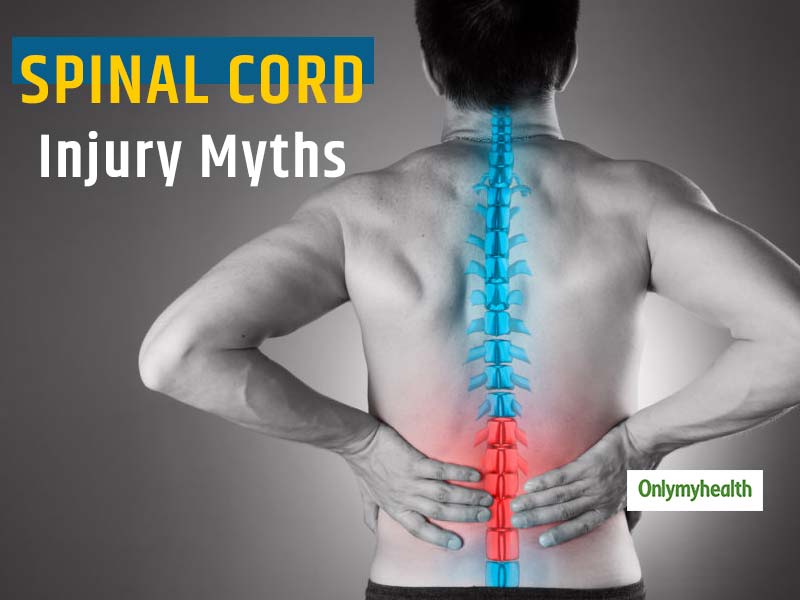
The spinal cord is a group of nerves that carries the message of the brain to other parts of the body. Imagine an unfortunate event causing damage to any part of the spinal cord or the nerves at the end of the spinal canal? The responsibility of the spine is huge, for it becomes a medium to exchange millions of messages between your body and mind every day, and even slight damage can lead to disruption in transmitting these messages. Trauma due to car accidents, falling, or diseases like polio can lead to spinal cord injuries. Despite a lot of awareness surrounding the spinal health, there exist various myths and misconceptions that can act as a barrier between rehabilitation and treatment.
Table of Content:-
Some of the myths related to Spinal Injury are as follows, as explained and busted by Dr Sumit Sinha, Director Neurosurgery & Spine Surgery, Paras Hospitals Gurgaon:
Myth 1: Rehabilitation Better For Young Adults

Some people tend to believe that rehabilitation from the injury is easier for young adults. But this stands completely false, and one should not believe in any age-related misconceptions for spinal injury cure. The real deal is that the rehabilitation depends on each patient’s case and various other factors as well as the type of injury, positive attitude and access to necessary resources at home and hospital.
Also Read: Tips For A Speedy Recovery From Spinal Cord Impairment
Myth 2: Injury Of Spines Means Disabled For Lifetime
People have a misconception that people with Spinal Cord injury become disabled for life. But each case and every injury is different, and it is unlikely to happen to find two similar cases. However, the range of disability in the patients suffering from Spinal Cord Injury mainly differs. Though patients with spinal cord injuries lose motor and sensory functioning, in a few cases, it is possible to recover from disability and gain few movements back partially.
Myth 3: Spinal Injuries Affect Fertility

It is believed that people with Spinal Injury cannot have children. If you are one of those who think that way, then you need to change your perception. Spinal Injury has no lasting effect on fertility. The injury could be severe and might cause serious complications, but that does not necessarily make a woman/man infertile. It also does not impact the development of the baby.
Myth 4: Resuming Work After Spinal Cord Injury Is Impossible
People believe that after a spinal injury, you cannot resume your work but in most, if the cases it has been seen that most of the survivors can resume work after the first year of injury. You may require to make minor adjustments, but it is not the case for all. Occupational therapists assist the survivors in finding new career paths where necessary. Also, one must take all the necessary precautions suggested by the doctor for proper rehabilitation.
Myth 5: Shorter Life Span For Spinal Cord Injury Patients
People with Spinal Cord Injury have a shorter lifespan is another myth associated with this condition. Their lifestyle influences the life expectancy of an SCI person. A well-rounded diet, regularly exercising, and resources to make life comfortable leads to a longer lifespan.

Also Read: All About Scoliosis, A Lesser-Known Spinal Deformity
A person suffering from SCI needs support from family, friends and acceptance from the society to recover faster from the trauma. Right treatment and therapy is the way to care for people with Spinal Cord Injury.
With inputs from Dr Sumit Sinha, Director Neurosurgery & Spine Surgery, Paras Hospitals Gurgaon
Read more articles on Other Diseases
Read Next
Prone Positioning Could Save Life of COVID-19 patients But Can Cause Other Lifelong Damages
How we keep this article up to date:
We work with experts and keep a close eye on the latest in health and wellness. Whenever there is a new research or helpful information, we update our articles with accurate and useful advice.
Current Version
